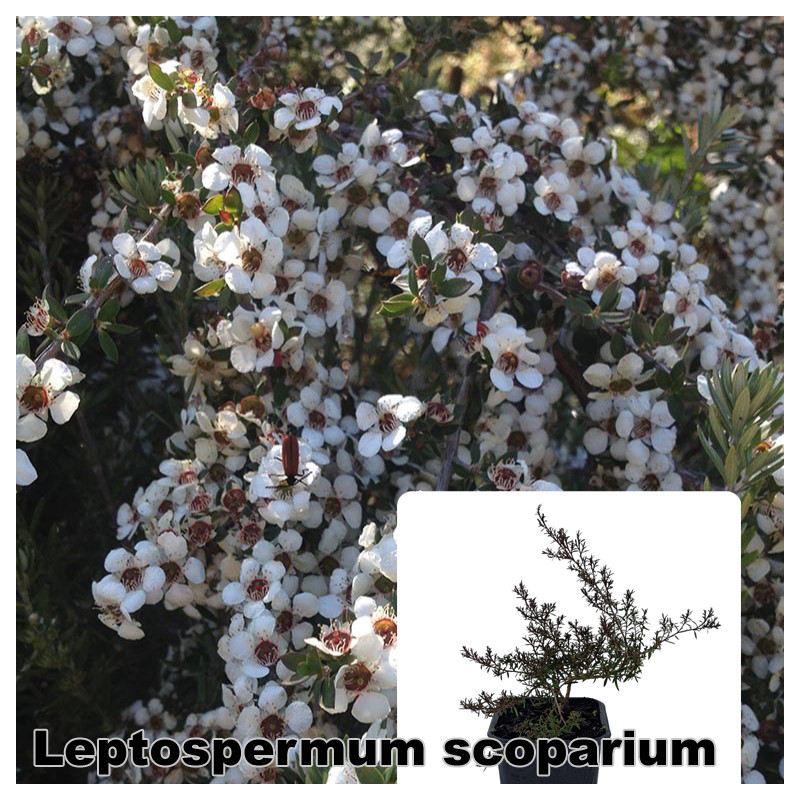Manuka (Leptospermum scoparium) is a species of flowering plant in the myrtle family Myrtaceae, native to New Zealand (including the Chatham Islands) and south-east Australia. Bees produce manuka honey from its nectar. The Latin specific epithet scoparium means like broom, referring to Northern Hemisphere genera such as Genista and Cytisus which it superficially resembles, but to which it is only distantly related.

